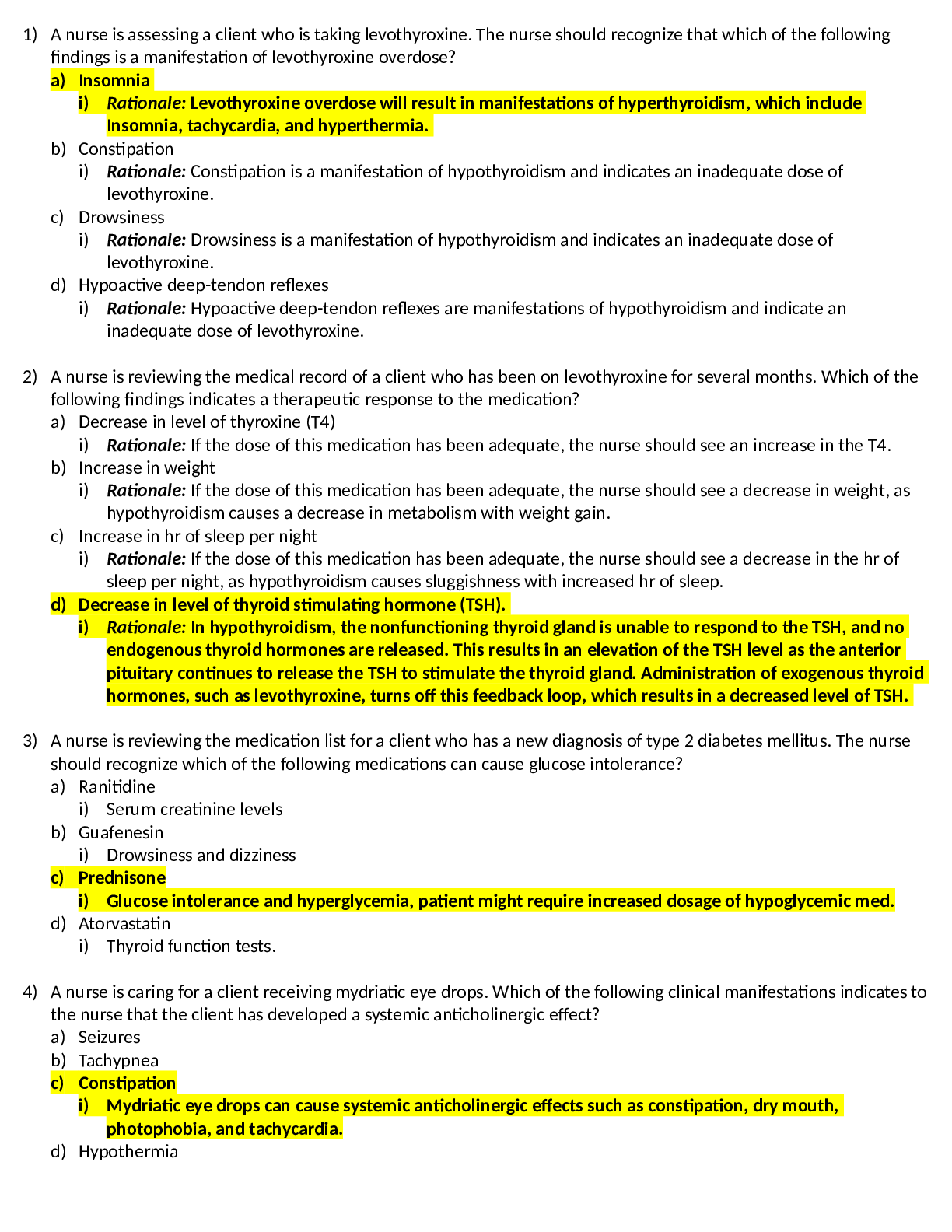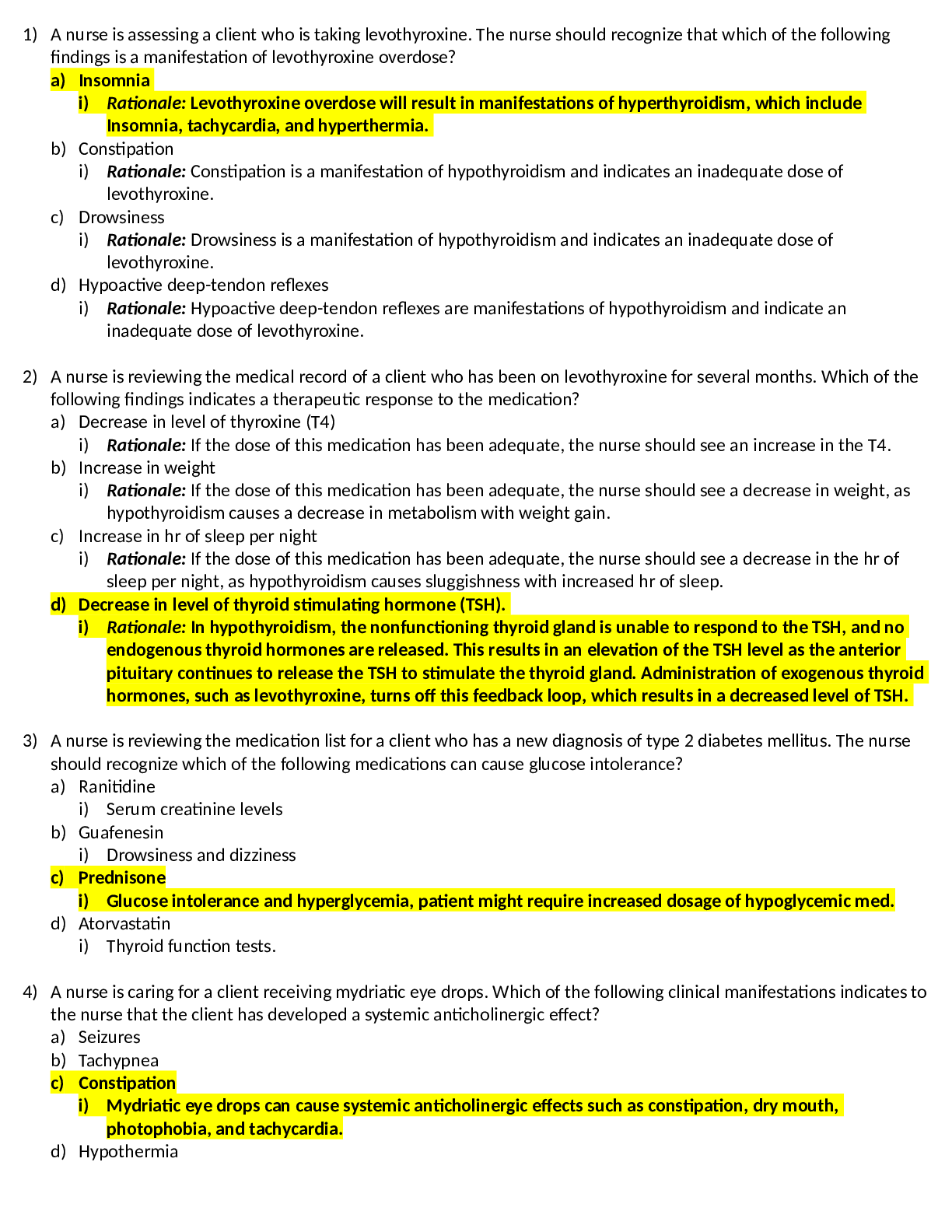Pharm Final Review
Course
Project Management
Subject
Chemistry
Category
Questions and Answers
Pages
25
Uploaded By
ATIPROS
Preview 5 out of 25 Pages


Download all 25 pages for $ 7.74
Reviews (0)
$7.74
